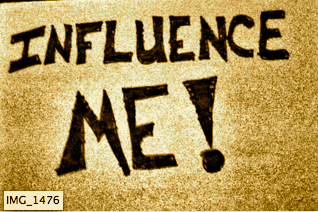5 Reasons the Press Release is Dead
Ever get the feeling that you just don’t get the same pick up from your press releases that you used to? Well, it shouldn’t be that surprising. As a PR Practitioner with more experience than I really care to admit, the press release might just have gone the way of the Dodo bird – well, the press release as we know it today. Want to make your press releases more effective? Take a look at these:
1. First and foremost your audience is wrong!
To effectively write a press release it can’t be written for your client! This applies to both your internal clients for those PR Practitioners who work for companies and also those who are consultants.
Remember the golden rule: Always write for your audience. If you are writing for your client you have lost before you begun. No reporter is going to be interested in an obvious self-promotion piece. There has to be more…see #2.
2. Ask yourself who cares
Directly tied to your audience, you need to ask the question who cares? What is it about the news that you want to share in your press release that is so significant? How does it impact your customers or the public? Given what is actually happening and being covered in the news, both locally and internationally, is your news tidbit really that much more important and/or interesting? What problem is it actually solving?
If you honestly can’t think of a reason that an objective person – with no skin in the game – would have to care about what you are pushing in your press release, then by all means, don’t write or issue one. Be honest with yourself. There has to be something interesting/relevant.
If you do decide to go ahead, at best it will be ignored by all media. However, the flip side of this there will be a number of reporters, assignment editors, producers shaking their heads and dismissing your submissions as well…useless. In the future they won’t waste the effort to even consider anything in their in boxes from you.
3. Not understanding how to pitch
Admittedly this can be the most difficult part about getting to a reporter, particularly if you don’t know the reporter from Adam or Eve.
If you make a cold call and “IF” the reporter or assignment editor actually answers, you better have your elevator pitch fine tuned. And, I am not kidding when I speak of having an elevator pitch ready to go. You will literally have seconds to tell why your product, service or company deserves an interview, news story or feature in said publication and/or newscast.
Oh, and don’t call the reporter to ask permission to send a news release. He or she is already inundated with people sending news releases, both good and bad. Make the most out of the phone call with the details in an elevator pitch. If the reporter bites, then you can send along supporting information.
You need to be quick, some might argue pithy, and interesting. If you are unsure, hesitate or can’t convey the why the information in your press release is important and how it is going to change things, then forget about it. The reporter is moving on. He or she has tight deadlines and lots of expectations. And, that takes me to the next point!
4. Lack of environmental awareness
Now, I am not talking about global warming here. No, I am talking about how the news/media industry now works. Things have changed significantly in the last 10 years and even more drastically in the last three years. There are fewer reporters covering more stories and topics than ever before. Many media outlets not only have reporters interviewing and writing, but they are also researching, taking photos and if for TV or video, shooting that same video! All of this adds pressure to what a reporter can or cannot do.
If you really want to make headway with a reporter, there are a five key things that every PR Practitioner MUST do:
- Be absolutely certain to know and understand what their area of expertise/interest is. Sure some reporters cover everything, but there are still a few specialists. So, if you want to pitch a story about a revolutionary new product in the manufacturing industry, don’t call the court reporter. Not only do you annoy the person by distracting him or her from what they need to do, it shows that you didn’t do your homework.
- Keep in mind that because some may specialize in a certain area, he or she will not know everything about that industry, so make it easy for him or her. For example, if you find the IT reporter and get through be sure to have your elevator pitch on this great new startup ready, but also have a fact sheet ready that you can send, if required.
- Above all else speak in laymen’s terms. Too many times I have visibly seen what happens when people start to get all technical and using terms that the average person does not understand. The eyes glaze over and then it is the “well thank you” and they move on. You don’t have to speak in technical terms to sound smart and most importantly you shouldn’t if you want the reporter to be interested. Remember, the reporter has to make quick decisions and if he or she is not really sure of what it is that you are talking about, not only does he or she not have time, but maybe their audience won’t either. That is then a colossal waste of time.
- Have photos, interview subjects, quotes, Q&A’s, video and factsheets all ready and available immediately for the reporter.
- Don’t ask the reporter to Tweet about you, your company, event or product. That is just not going to happen and by asking you are again demonstrating that you don’t understand the roles and responsibilities of the media.
5. Time is of the Essence
Always remember to pitch new information. Never pitch something that was released previously and may not have been picked up. If it wasn’t picked up last month, there is probably a good reason for that. See # 1 and #2. If it was picked up, it won’t be difficult for the reporter to determine that this is not news and that you just wasted his or her time. Again, not cool.
So, what are the key take-aways to make the best out of today’s press releases?
- Know your audience and write for that audience (and it is not your client)
- Be prepared and don’t waste a reporter’s time
- Ensure that what you are pitching is really news
- Help reporters by having all the relevant information they could want/ need ready at your finger tips
Remember PR is not a science. It is an art. We are dealing with human beings. This means that we need to remember the basics in terms of human wants and needs. Reporters are people too. They need a lot of things to be successful. Let’s give them what they need.
Want to learn more? We can help you with your press releases, pitches and media training.


